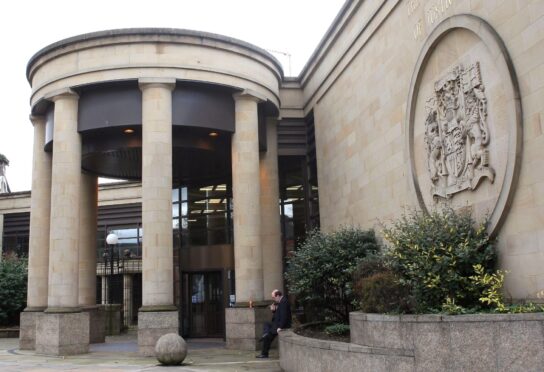Police Scotland is to review its approach to counter corruption after a probe called for an urgent overhaul.
Derek Penman, HM Inspector of Constabulary in Scotland, has made 39 recommendations for improvement after an investigation into the force’s counter corruption unit (CCU).
The Scottish Police Authority (SPA) ordered the review after it was revealed last year that guidelines on accessing data without proper consent had been breached when the CCU tried to discover more details about a journalist’s sources in relation to a newspaper story about the murder of prostitute Emma Caldwell.
In his report, Mr Penman found that CCU information-handling processes were “significantly different from national standards for source and information evaluation, and fell below the standards I would have expected”.
He found CCU safeguards for managing contact with sources were “inadequate” and criticised the handling of CCTV disc footage that led to evidence being lost.
“My examination of CCU intelligence files also raised concerns over the routine management, oversight and wider governance of CCU enquiries, including the extent to which chief officers are actively briefed and can direct on CCU matters,” he said.
The review concluded the unit had become “largely reactive” with “minimal evidence of proactive anti-corruption investigations”.
Instead, the majority of activity focused on “administrative background checks, notifiable associations and data protection offences”.
Mr Penman also highlighted concerns about the “legality, proportionality and the apparent lack of procedural fairness carried out by the CCU when dealing with police officers and members of police staff”.
“The primary concern was over a general lack of transparency and accountability within the CCU, and frustration by police officers that when they raised complaints against CCU officers, these were not taken seriously or independently investigated.”
He concluded: “I have recommended that the service should urgently review its approach to tackling corruption and develop both the capability and capacity for effective pro-active anti-corruption investigations that are underpinned by a robust intelligence function.
“This should include a review of its existing structures and give consideration to transferring the burden away from the CCU of high-volume administrative background checks, notifiable associations and those data protection offences which do not infer corruption.
“Police Scotland should ensure that the CCU prioritises its workload around the threat posed by serious organised crime groups.”
Deputy Chief Constable Iain Livingstone said: “The Chief Constable gave his absolute commitment that we would act upon the findings of the HMICS assurance review.
“He has instructed me to carry out a full review of the approach to counter corruption by Police Scotland based upon the recommendations made in today’s report.
“This will focus on structures, practices and process to ensure that there is full internal and external confidence in this vitally important, challenging and sensitive area of work. I have asked that a steering group meets immediately to take this forward.
“The public expect the police to carry out their duties to the highest possible standards. Where allegations are received of serious criminality or corrupt practice, these will be fully and robustly investigated.”
He added: “A team of detectives from the major investigation team is fully engaged in establishing the person or persons responsible for the murder of Emma Caldwell in 2005.
“Such cases always remain open and are subject to regular review. Full-scale reinvestigation can be instigated at any time depending on a range of factors.”
Solicitor Aamer Anwar, who represented more than 20 police officers impacted by the actions of the CCU, said: “This appears to be a robust review of the CCU.
“Reading between the lines, both Police Scotland and the Scottish Government must understand that this ‘rogue’ unit is not fit for the purpose but associated with destroying the lives of innocent law-abiding officers.
“I will welcome any review that Police Scotland chooses to carry out but this unit must be disbanded and those who broke the law held to account.”
Andrew Flanagan, chair of the Scottish Police Authority (SPA), said: “The review that Police Scotland has announced, and on which the SPA will be an active participant, will be a root-and-branch one – on priorities, on capability, on culture, and on policies, protocols and processes.
“We welcome the clarity of the report and its findings, and will ensure that Police Scotland fully and swiftly address its findings and recommendations.
“The recommendations made to the SPA, for example on how to better-handle complaints made against officers involved in investigating corruption, are areas for improvement I identified in my own evidence to the Scottish Parliament earlier this year.
“Taken together, the insight from the HMICS report, the work already undertaken by the new Police Scotland leadership team and the comprehensive review now under way provides a clear path for the service to drive improvement and rebuild both workforce and public confidence.”










